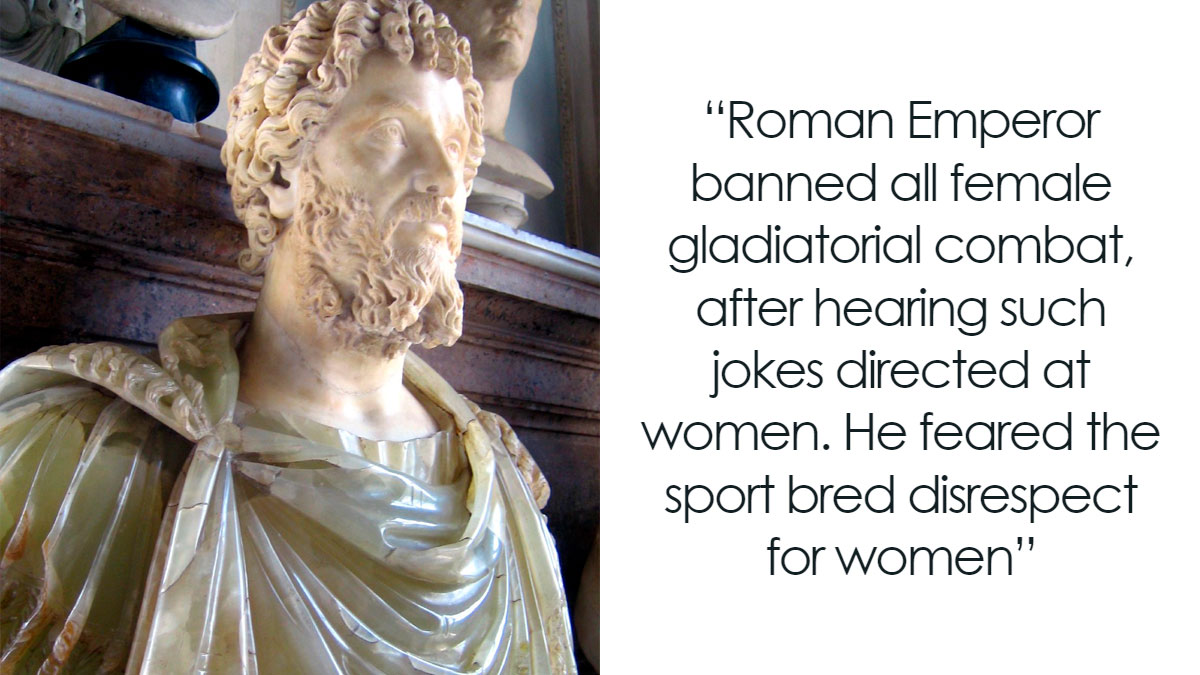
“2,055 Brown Recluse Spiders Were Collected”: 30 “Today I Learned” Facts, From Shocking To Cool
Learning something new every day can be surprisingly fun, especially when it’s you who decides what topic to focus on each day. Chances are, you already find yourself delving deeper into the topics you never knew you were interested in (for instance, the Bajau people, considered to be the best free-divers in the world) at times, arguably at least partially thanks to the internet.
It’s true – thanks to the online world, learning has never been easier, and one of the things that illustrates it best is the ‘Today I Learned’ subreddit, brimming with fun facts about any and every topic there is. If you’re curious to see what kind of facts the community focuses on, scroll down to find some of them on the list below, and make sure to upvote the most fascinating things you learned from the community today.
If you scroll down, you will also find Bored Panda’s recent interview with an associate professor of history at Southern Utah University, Dave Lunt, who was kind enough to share his views on learning and even some stories about one of the most knowledge-hungry people ever lived.
This post may include affiliate links.
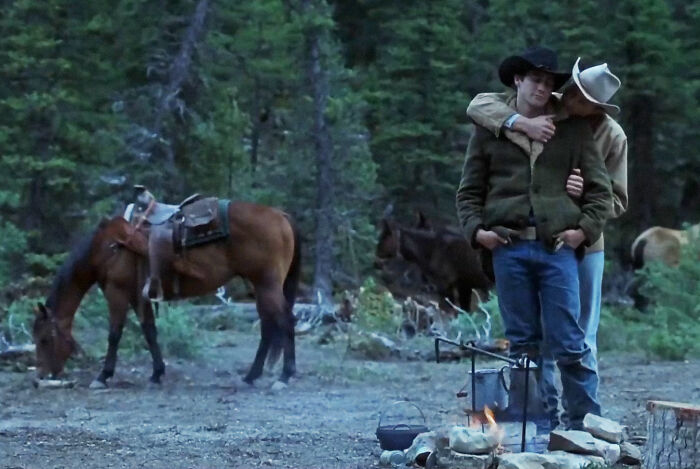 Heath Ledger refused to present the Oscars in 2007 after he and Jake Gyllenhaal were asked to make fun of their "Brokeback Mountain" characters' romance.
Heath Ledger refused to present the Oscars in 2007 after he and Jake Gyllenhaal were asked to make fun of their "Brokeback Mountain" characters' romance.
As admirable as this is, I even more admire the approach of Adam Driver, hosting one of the Saturday Night Live event. He took the stage and started talking....and blabbing... and chatting and at the very end he mentioned something along "and here they wanted to air a transphobic sketch but I just dragged on to not let that happen." Legend 😎👏🏻 https://youtu.be/VEvAUeq8Z7o?si=6XKbso7fZ1Dwb4qu. Comment at around 3:50min but all of it is worth watching.
 During the siege of Leningrad during World War II, 28 scientists chose to die of hunger while protecting the seed vault at the Vavilov Institute rather than eating the seeds.
During the siege of Leningrad during World War II, 28 scientists chose to die of hunger while protecting the seed vault at the Vavilov Institute rather than eating the seeds.
 2024 is the year the US Dept of Health and Human Services banned hospitals from performing non-consensual breast, pelvic, prostate, and rectal exams for “educational and training purposes” by medical students and practitioners on patients under anesthesia.
2024 is the year the US Dept of Health and Human Services banned hospitals from performing non-consensual breast, pelvic, prostate, and rectal exams for “educational and training purposes” by medical students and practitioners on patients under anesthesia.
“I think it goes without saying for most people that learning is a vital part to being human, whether we call it formal education, ‘life lessons’, gaining experience, acquiring wisdom, or anything else,” Assoc. Prof. of history at Southern Utah University Dave Lunt said, discussing the importance of learning with Bored Panda.
“From the time we are babies, people are learning about their world. And I believe that we never stop learning, although we often go from formal learning to informal learning when we leave school (at whatever age, at whatever level). I would like to think that people remain hungry to learn throughout their lives, but—of course—this is not always the case. Sometimes, as we get older, we grow complacent in our conclusions and our beliefs, but I think one of the goals of formal education is to inspire students to remain ‘lifelong learners’ after they complete formal studies.”
 The sound a whip makes when you crack it is caused by a sonic boom created when the tip of a whip moves faster than the speed of sound. The whip was also the first man made object to break the sound barrier.
The sound a whip makes when you crack it is caused by a sonic boom created when the tip of a whip moves faster than the speed of sound. The whip was also the first man made object to break the sound barrier.
Crusty bread and biscuits also break the sound barrier. I don't know if they pre-date the whip or not.
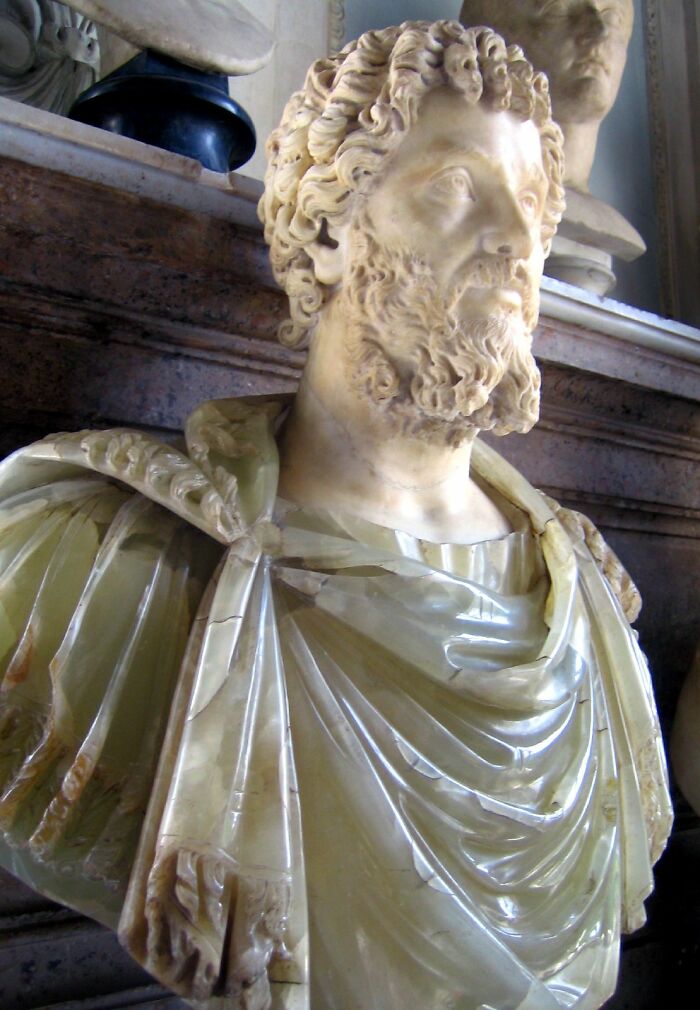 In 200 CE, Roman Emperor Septimius Severus banned all female gladiatorial combat, reportedly after hearing such lewd jokes directed at women in an athletic contest that he feared the sport bred disrespect for all women.
In 200 CE, Roman Emperor Septimius Severus banned all female gladiatorial combat, reportedly after hearing such lewd jokes directed at women in an athletic contest that he feared the sport bred disrespect for all women.
Lunt noted that there are lots of different ideas about what the goal of education should be, from securing a good job, to inspiring responsible citizenship or living a “good" life. “One of my favorite characters from history is Socrates; at least the version of Socrates that we learn about from his student, Plato. Socrates is a good example to me of what a ‘lifelong learner’ might look like,” he shared.
“In 399 BCE, Socrates was put on trial in ancient Athens, and Socrates's speech at that trial is called his Apology. Socrates's Apology—as told by Plato—is not him saying ‘I'm sorry’, but the word refers to Socrates's defense for his actions. Socrates annoyed a lot of people, I'm sure, by constantly asking questions and poking holes in people's assumptions, but at his trial he offered one of the best justifications for learning that I know of. Socrates made no apology for his curiosity. He told the jury of Athenians that ‘the unexamined life is not a life worth living’.
“The word usually translated as ‘unexamined’ is ἀνεξέταστος, and it means something like ‘not looked into’ or ‘not inquired into’. It may not be exactly what Socrates meant, but I like to think of this sentence as a reminder to always be examining my own life, my beliefs, what I know, and what I'm learning,” Lunt explained, adding another interesting fact to our ‘Today I Learned’ list.
 During WW2 the Nazis spent the modern day equivalent of 100 million usd to make a underground base in Poland which saw little to no use. Soon after building it they lost the war, and it is now one of the largest bat habitats in Europe.
During WW2 the Nazis spent the modern day equivalent of 100 million usd to make a underground base in Poland which saw little to no use. Soon after building it they lost the war, and it is now one of the largest bat habitats in Europe.
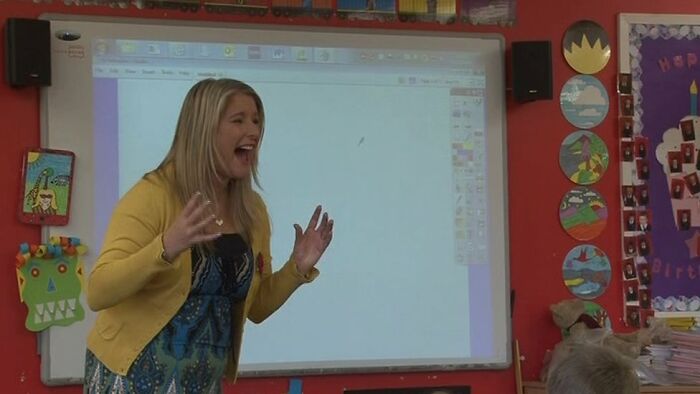 The loudest shout ever recorded was by a primary school teacher who yelled ‘quiet!’ It was clocked at 121.7 decibels and the record has stood for 30 years.
The loudest shout ever recorded was by a primary school teacher who yelled ‘quiet!’ It was clocked at 121.7 decibels and the record has stood for 30 years.
 Dana Carvey underwent heart bypass surgery for a blocked coronary artery, but the surgeon operated on the wrong artery. Eventually he won a lawsuit against the hospital and won 7.5 million dollars, all of which was donated to charity.
Dana Carvey underwent heart bypass surgery for a blocked coronary artery, but the surgeon operated on the wrong artery. Eventually he won a lawsuit against the hospital and won 7.5 million dollars, all of which was donated to charity.
As Assoc. Prof. Lunt mentioned, quite often learning extends way beyond graduating school or university. Some people are so curious, they never stop learning, and Socrates was seemingly one of such people.
“Of course there are more ways to learn than merely sitting in a classroom or listening to a teacher. Going back to Socrates, he very famously was not a paid teacher. He didn't work in a school. But he was extremely curious and always hungry to learn. In one of Plato's dialogues, Socrates asks another philosopher named Phaedrus to forgive him for his many questions, since he (Socrates) is ‘φιλομαθὴς’ (philomathes), which translates more-or-less to ‘a lover-of-learning’ [or ‘fond of learning’],” the expert noted.
“If someone like Socrates, who was so smart and had many people looking to him as a teacher, was eager to learn, that drives home to me the importance of curiosity and inquiry. The world is a big place, with a lot of knowledge in it. We would all do well to learn as much as we can, whether it is in school, on-the-job, or ‘life lessons.’ There is always something out there for a curious person to learn.”
 In the Movie "Scream" (1996) there is a section in the credits saying "No Thanks whatsoever to the Santa Rosa city school district governing board" Santa Rosa revoked permissions to film there last minute and cost the production 350,000$.
In the Movie "Scream" (1996) there is a section in the credits saying "No Thanks whatsoever to the Santa Rosa city school district governing board" Santa Rosa revoked permissions to film there last minute and cost the production 350,000$.
The Santa Rosa city school district thought like P.T. Barnum, “There’s no such thing as bad publicity,”
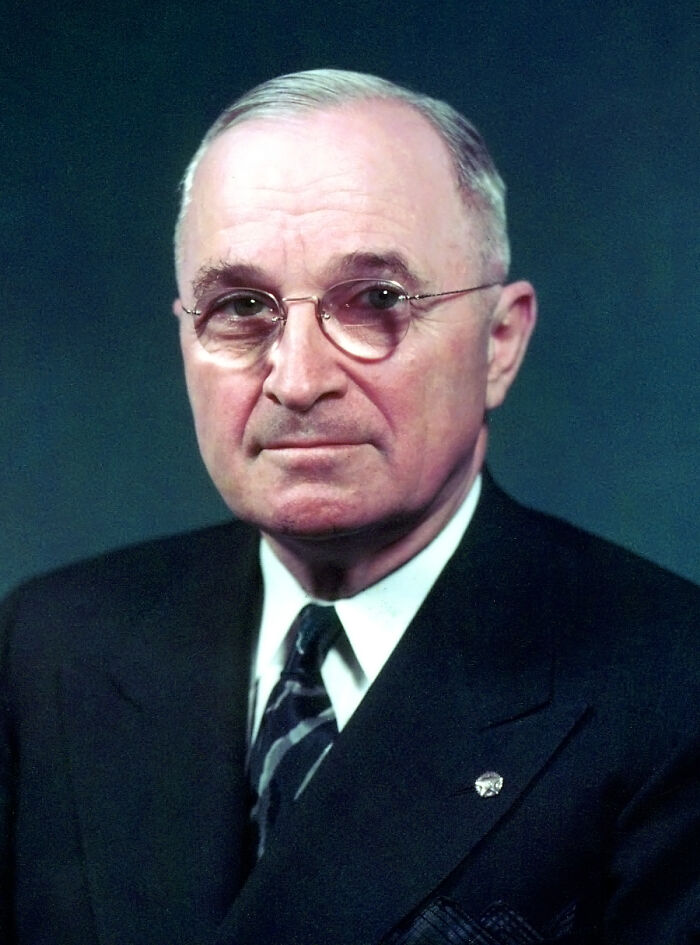 The "S" in "Harry S. Truman" wasn't an abbreviation. The dude's middle name was literally just the letter S.
The "S" in "Harry S. Truman" wasn't an abbreviation. The dude's middle name was literally just the letter S.
 A 2022 California Supreme Court decision allowed bumble bees to be considered a protected species because they met the state’s legal definition of a “fish”.
A 2022 California Supreme Court decision allowed bumble bees to be considered a protected species because they met the state’s legal definition of a “fish”.
The mind boggles at how broad the definition of a fish must be, obviously living in water isn't one of the requirements
Discussing the internet’s influence on people’s willingness to or interest in learning nowadays, Lunt pointed out that it sure makes it easier to find information. “I am Generation X, so firmly in middle age, and I remember life before the internet pretty well. Even today, I am consistently amazed at how easy it is to find basic information on the internet – trivia, names, dates, things like that. I spent a lot of hours in college digging through books, flipping through pages, trying to remember where I had read or seen some fact or idea. Now all of that is readily available with a few keystrokes and a search engine.”
 A clown saved 300 children during the deadliest avalanche in history. Only 400 people survived out of around 18,000 in the town of Yungay, Peru. The children were attending a circus and a clown led them to higher ground moments before the avalanche destroyed the entire town.
A clown saved 300 children during the deadliest avalanche in history. Only 400 people survived out of around 18,000 in the town of Yungay, Peru. The children were attending a circus and a clown led them to higher ground moments before the avalanche destroyed the entire town.
I can only assume this means that an incredibly high number of those children were made into orphans during that avalanche :( It is wonderful that they survived, but how bittersweet their survival must have been for them.
 In world war 2, English soldiers would use passwords that had sounds that the language of the people they where fighting against did not have, so that they could tell if an unidentified person was an enemy soldier tying to infiltrate them by if they said these sounds correctly.
In world war 2, English soldiers would use passwords that had sounds that the language of the people they where fighting against did not have, so that they could tell if an unidentified person was an enemy soldier tying to infiltrate them by if they said these sounds correctly.
Nothing unique. We have a similar story in Flanders, for 1302. The sentence was "schild en vriend", as the prononciation of the "sch" in Dutch is difficult to master for "outsiders" and is even different in different regions and dialects. Just look up the word "Shibboleth" in Wikipedia. That's about this is age old language trick.
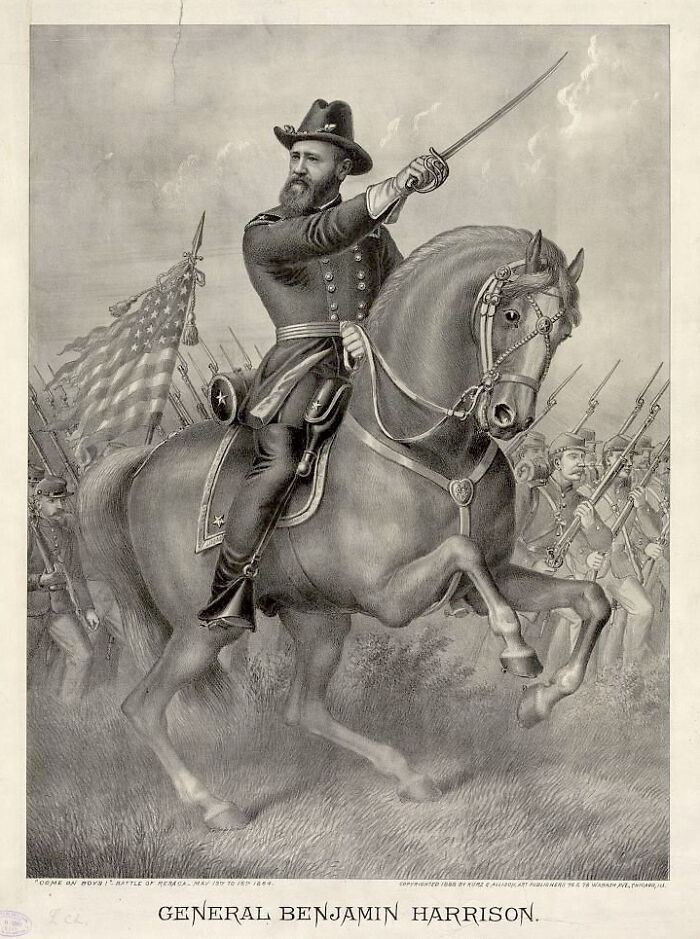 US president Benjamin Harrison was widowed while in office in 1892. Four years later, Harrison married his dead wife's niece and had a daughter with her. His adult children who were around 40 years old, were horrified that their father married their cousin and didn't attend the wedding.
US president Benjamin Harrison was widowed while in office in 1892. Four years later, Harrison married his dead wife's niece and had a daughter with her. His adult children who were around 40 years old, were horrified that their father married their cousin and didn't attend the wedding.
“I suppose that psychologists and educators and lots of other smart people are studying the effects of the internet on human learning, education, memory, and other fields,” the historian continued. “But for me, the advent of the internet has made it easier to find facts and yet made it more difficult to think originally and creatively. Curating a limitless trove of information, some of it accurate, some of it inaccurate, is an impossible task and so, with the internet, ‘learning’ (for me) has shifted to interpretation of sources, understanding cause-and-effect, assessing reliability, and similar processes.
“So, of course, the internet has made it so very easy to learn something new each day; especially via curated and interesting outlets. However, by the same token, the internet has made it easy for inaccurate or incomplete information to spread.
“Internet sites often offer interpretations that deserve more scrutiny, or opinions disguised as facts. This, I think, makes it all the more important for us to remain ‘lifelong learners’ in order to interpret information and assess reliability, and to be willing to update our conclusions when new information emerges. The internet is an enormously consequential and important tool for learning, but we shouldn't let it do our thinking for us,” Lunt emphasized.
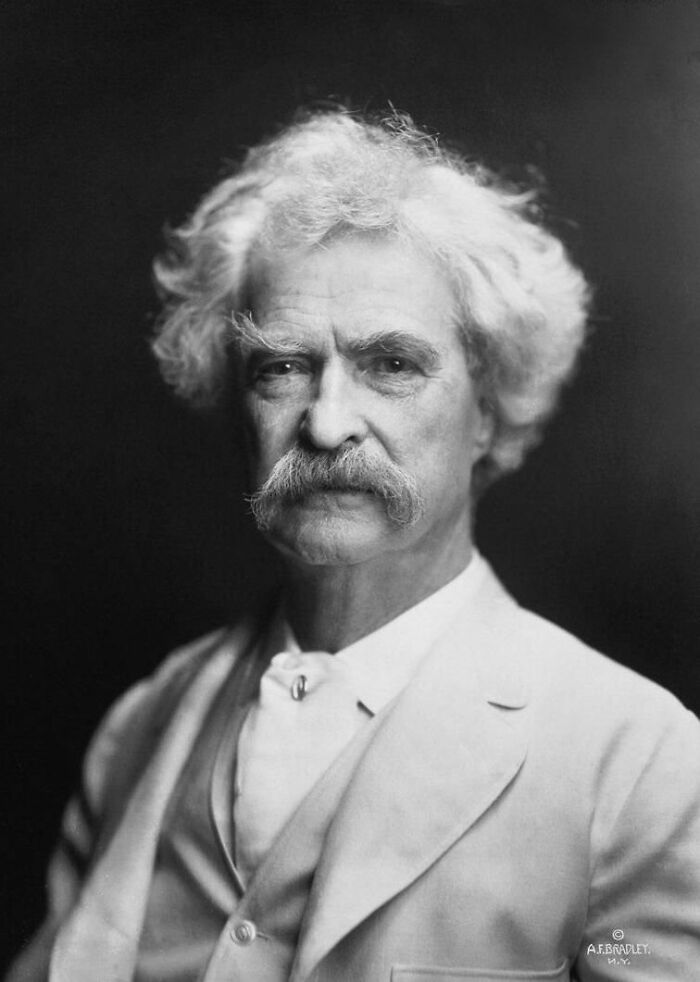 Tom Sawyer author Mark Twain invented the clasps commonly used on women’s bras.
Tom Sawyer author Mark Twain invented the clasps commonly used on women’s bras.
He brought adventure and wonder to teenagers with Tom Sawyer and Huck Finn, then he left them in total frustration with a simple fastener!
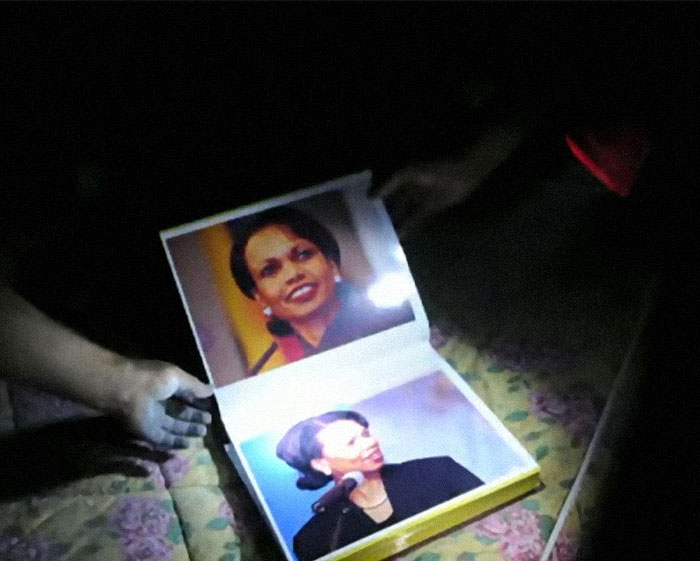 Dictator Muammar Gaddafi had a strange obsession with US Secretary of State Condoleezza Rice. He had Libya's most famous composer write her a song called "Black Flower in the White House." A photo album full of pictures of her was also found next to his bed by opposition fighters.
Dictator Muammar Gaddafi had a strange obsession with US Secretary of State Condoleezza Rice. He had Libya's most famous composer write her a song called "Black Flower in the White House." A photo album full of pictures of her was also found next to his bed by opposition fighters.
 Pirates and buccaneers sometimes engaged in "matelotage", a practice in which male couples would agree to share their incomes and inherit their partner's property in the case of their death.
Pirates and buccaneers sometimes engaged in "matelotage", a practice in which male couples would agree to share their incomes and inherit their partner's property in the case of their death.
Summing it up, Assoc. Prof. Lunt suggested that having a learning mindset is one of the most important assets that people can have today, especially younger people who are looking for careers and starting out on their paths in life. “Being a learner shows humility – nobody knows all of the answers but we don't always like to admit it. Even Socrates famously announced at his trial that the only thing he really knew was that he didn't know anything.”
 The native language of the volcanic island Manam Motu has no words for cardinal directions (North, East, West, South). Instead, it uses polar coördinates—with words meaning “towards the volcano”, ”towards the sea”, “clockwise around the volcano”, and “counterclockwise around the volcano”.
The native language of the volcanic island Manam Motu has no words for cardinal directions (North, East, West, South). Instead, it uses polar coördinates—with words meaning “towards the volcano”, ”towards the sea”, “clockwise around the volcano”, and “counterclockwise around the volcano”.
 Four of the last 7 Illinois Govenors have been jailed.
Four of the last 7 Illinois Govenors have been jailed.
 During World War II, US comedian Redd Foxx dodged the draft by eating half a bar of soap before his physical, a trick that resulted in heart palpitations.
During World War II, US comedian Redd Foxx dodged the draft by eating half a bar of soap before his physical, a trick that resulted in heart palpitations.
 Earth's magnetic field was approximately twice as strong in Roman times as it is now.
Earth's magnetic field was approximately twice as strong in Roman times as it is now.
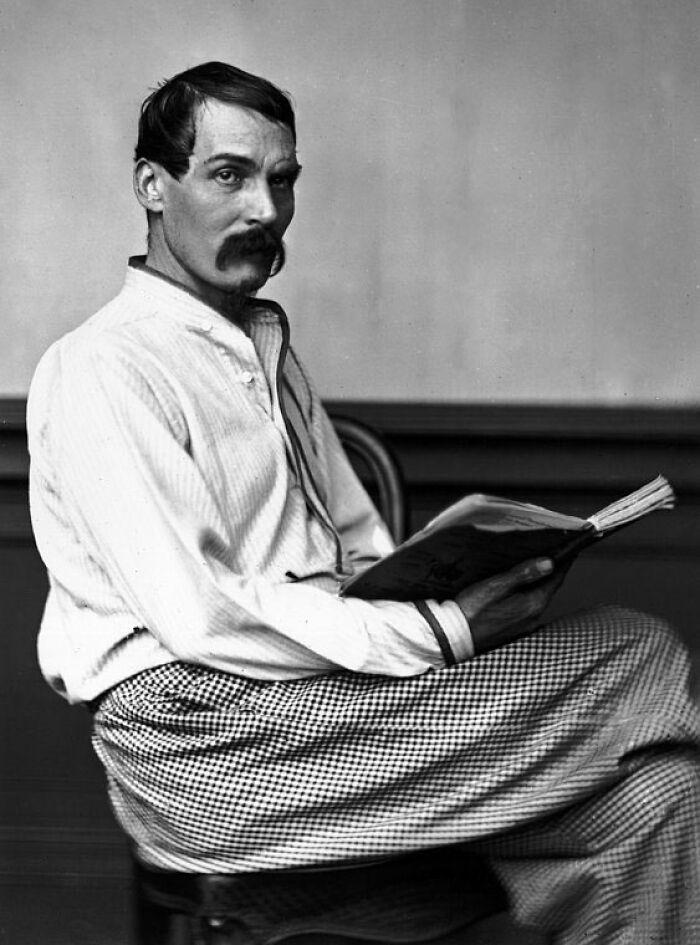 In 1853, linguist and explorer Richard Francis Burton disguised himself as a Muslim and made the hajj, the pilgrimage to Mecca which is required of all Muslims. He later wrote a book about his experiences.
In 1853, linguist and explorer Richard Francis Burton disguised himself as a Muslim and made the hajj, the pilgrimage to Mecca which is required of all Muslims. He later wrote a book about his experiences.
 Local Cretan resistance in WWII was so great that civilians would attack Axis paratroopers as they were landing with knives, axes, scythes and even their bare hands.
Local Cretan resistance in WWII was so great that civilians would attack Axis paratroopers as they were landing with knives, axes, scythes and even their bare hands.
The Nazi paratroopers faced fierce resistance by the poorly armed civilians and had heavy losses. They never used as paratroopers again, until the end of the war. As reprisals they killed as many civilians they found and razed the village closest to their landing zone. https://en.wikipedia.org/wiki/Razing_of_Kandanos
 Sugar isn’t directly bad for your teeth, but rather it creates the perfect environment for bacteria in your mouth to thrive, and they produce acid as a byproduct which IS bad for your teeth.
Sugar isn’t directly bad for your teeth, but rather it creates the perfect environment for bacteria in your mouth to thrive, and they produce acid as a byproduct which IS bad for your teeth.
 Rodin, the famed sculptor, didn’t actually sculpt in marble. He made sand models and his assistants, namely Camille Claudel, made the art we love.
Rodin, the famed sculptor, didn’t actually sculpt in marble. He made sand models and his assistants, namely Camille Claudel, made the art we love.
Just like James Patterson doesn't write his own books! he just gives the premise to one of his many ghost writers and they do the work, he gets all the credit and the money.
 There was case in US where a person failed to die during electric chair execution and then his lawyers tried to argue that he was not dead but he had been executed and that it was cruel to go through a second time.
There was case in US where a person failed to die during electric chair execution and then his lawyers tried to argue that he was not dead but he had been executed and that it was cruel to go through a second time.
 Millvina Dean was the last and youngest survivor of the Titanic. She was just over 2 months old when the Titanic sank on April 14, 1912. Dean credits her father for her survival. She was one of 706 people — mostly women and children — who survived. Her father was among the 1,517 who died.
Millvina Dean was the last and youngest survivor of the Titanic. She was just over 2 months old when the Titanic sank on April 14, 1912. Dean credits her father for her survival. She was one of 706 people — mostly women and children — who survived. Her father was among the 1,517 who died.
 Near the end of her life, Ada Lovelace had a religious transformation and began to repent the conduct of her life. After confessing something to her husband 3 months before her death, he abandoned her bedside. It is not known what she told him.
Near the end of her life, Ada Lovelace had a religious transformation and began to repent the conduct of her life. After confessing something to her husband 3 months before her death, he abandoned her bedside. It is not known what she told him.
It's rumoured to be something truly unforgivable, like "I've invented JavaScript"
 Ivan VI of Russia, who ascended the throne at the age of two months, was overthrown by his cousin Elizabeth Petrovna a year into his reign. He spent the next 20 of his life secretly imprisoned without the guards knowing his true identity, before being killed in an attempted rescue.
Ivan VI of Russia, who ascended the throne at the age of two months, was overthrown by his cousin Elizabeth Petrovna a year into his reign. He spent the next 20 of his life secretly imprisoned without the guards knowing his true identity, before being killed in an attempted rescue.
 In China, water is typically drunk hot.
In China, water is typically drunk hot.
I hate the "get premium to continue reading" bs. Come on BP. First restricting dark mode, now cutting off articles??
I hate the "get premium to continue reading" bs. Come on BP. First restricting dark mode, now cutting off articles??

 Dark Mode
Dark Mode 

 No fees, cancel anytime
No fees, cancel anytime 








































